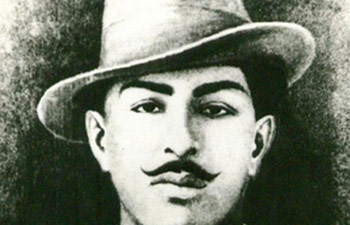Washington, Jul 21: Democrat Joe Biden urged Muslim Americans on Monday to join him in the fight to defeat President Donald Trump as he addressed an online summit hosted by the advocacy organisation Emgage Action to mobilise Muslim voters ahead of the presidential election.
I want to earn your vote not just because he's not worthy of being president, the presumptive presidential nominee told participants.
I want to work in partnership with you, make sure your voices are included in the decision-making process as we work to rebuild our nation.
Biden also reiterated a pledge to overturn a Trump administration ban on travelers from several predominantly Muslim countries, calling it vile.
Wa'el Alzayat, CEO of Emgage Action, said by email that the organisation was seeking to maximise Muslim American turnout in key battleground states.
In Michigan alone one of the states where the organisation has chapters and where Trump won in 2016 by fewer than 11,000 votes he said he believed there are more than 150,000 registered Muslim voters.
Several prominent Muslim American elected officials endorsed Biden for president in a letter organised by Emgage Action ahead of the summit.
Among those who signed the letter are Minnesota Rep. Ilhan Omar, Minnesota Attorney General Keith Ellison and Indiana Rep. Andre Carson, all Democrats.
Omar, one of the first Muslim women elected to Congress, served as a high-profile surrogate for Bernie Sanders before he exited the presidential race in April making her support for Biden potentially helpful as the former vice president seeks to mobilise Muslim voters this fall.
Muslim American voices matter to our communities, to our country, Biden said.
But we all know that your voice hasn't always gotten recognised or represented.
Emgage Action has titled the event Million Muslim Votes, underscoring its emphasis on boosting Muslim turnout in November.
Joe Biden's presence serves not only to galvanise Muslim Americans to cast their ballots, but to usher in an era of engaging with Muslim American communities under a Biden administration, Alzayat said by email before the summit.
The pro-Biden letter from Muslim American elected officials decried a number of Trump's domestic and international policies, including his administration's travel ban and his pullout from the Iran nuclear deal.
A Biden administration will move the nation forward on many of the issues we care about, the letter said, citing racial justice, affordable health care, climate change and immigration.
The Muslim American officials also praised Biden's agenda for their communities.
Among other goals, Biden has vowed to rescind the travel ban affecting Muslims on Day One if he's elected.
In his address, he pledged to include Muslim American voices in his administration, if elected, and to speak out against human rights abuses against Muslim minorities around the world.
I'll continue to champion the rights of Palestinians and Israelis to have a state of their own as I have for decades, each of them a state of their own, he said.
Other state- and local-level Muslim American officials signing onto the pro-Biden letter hail from several states, including Michigan.
 Kaur, 96, was the only surviving member of the martyr's immediate family. She was living in Toronto.
Kaur, 96, was the only surviving member of the martyr's immediate family. She was living in Toronto.




Comments
Add new comment